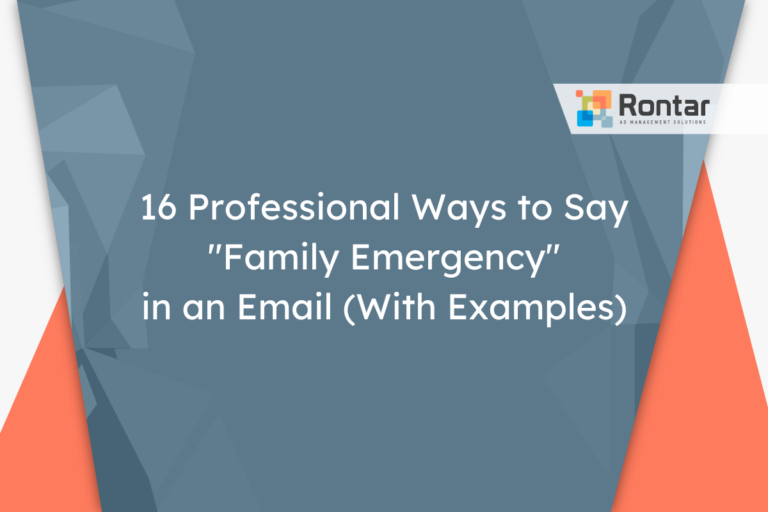10 Formal Synonyms for “Does That Work for You”

Effective communication is key in any professional setting, especially when scheduling meetings or confirming appointments. The phrase “Does that work for you?” is commonly used but might not always fit the level of formality or politeness required.
This article introduces ten formal alternatives that serve the same purpose, providing detailed insight into when and how to use them to maintain professionalism and respect in your communications. Each alternative is explored with examples to help you accurately convey your message in various professional contexts.
Is It Formal to Say “Does That Work for You”?
The expression “does that work for you” occupies a versatile spot in the spectrum of formality. It is professional, formal enough for most business settings, yet retains a degree of informality that makes it approachable and polite. Its appropriateness largely depends on the context and the relationship between the individuals involved. In environments where first-name basis interactions are common, this phrase is perfectly acceptable.
This phrase sees ample use in scheduling meetings, confirming arrangements, or seeking agreement on proposed plans. It’s inviting and seeks to ensure mutual convenience and agreement without presuming authority over the other party’s time or preferences.
Dear Emily, I hope this message finds you well. We are in the process of scheduling the project kick-off meeting and were considering Thursday at 3 PM. Does that work for you? Please let me know if there's a conflict or if another time is preferable. Kind regards, Michael Anderson
Pros:
- Conveys flexibility and willingness to accommodate.
- Appears courteous and considerate of the other party’s schedule.
- Suitable for a wide range of formal and informal settings.
Cons:
- May be too informal for certain traditional or very formal professional settings.
- Can imply uncertainty if overused, potentially undermining the speaker’s authority or decisiveness.
While “does that work for you” is widely accepted and commonly used, one might seek alternatives for various reasons. In highly formal or traditional contexts, opting for a more explicitly formal synonym could communicate respect and professionalism more clearly. Additionally, the use of alternatives might be preferred to avoid repetition or to adjust the tone slightly to match the situation more closely. Understanding when to employ this phrase versus an alternative hinges on being attuned to nuances in language and the specific dynamics of business relationships.
10 Other Ways to Say “Does That Work for You”
- Is this time convenient for you?
- Would this time be suitable for you?
- Does this time fit into your schedule?
- Are you available at this time?
- May I suggest this time for our meeting?
- Could we agree on this time?
- Is this arrangement agreeable to you?
- Would you be amenable to meeting at this time?
- Can we lock in this time?
- Do you have any objections to this time?
1. Is this time convenient for you?
This alternative strikes a balance between being professional and polite. It’s a synonym that is slightly more formal than “does that work for you,” making it better suited for professional written communications where you’re unsure of the recipient’s schedule. It implies consideration for the recipient’s convenience, showing respect for their time.
Dear Ms. Thompson, I hope you're doing well. We're coordinating a review meeting and were considering Tuesday at 10 AM. Is this time convenient for you? Warm regards, David Green
2. Would this time be suitable for you?
This phrase is an excellent formal and polite synonym that puts emphasis on the suitability of the time for the recipient. It’s ideal for occasions when you wish to appear considerate without assuming familiarity. This alternative also suggests flexibility, indicating that you are prepared to accommodate the recipient’s schedule as needed.
Dear Professor Jenkins, As we discussed, I am reviewing our next steps in the research project. Would this time be suitable for you? for a meeting to delve deeper into the details. Best, Liam Patel
3. Does this time fit into your schedule?
This question is particularly polite and expresses a desire to accommodate the recipient’s own agenda, which makes it quite formal and professional. It clearly shows consideration for the other person’s commitments and is especially suitable in communications where you may not be fully aware of the intricacies of the recipient’s schedule.
Dear Mr. Walters, Thank you for your interest in our services. Regarding our upcoming consultation, Does this time fit into your schedule? Kind regards, Sophia Chen
4. Are you available at this time?
This alternative is direct yet remains polite and professional. It’s less formal than other synonyms but is perfectly suited for situations where you have a defined relationship with the recipient. It is particularly useful in email communications that require a quick confirmation of availability without overcomplicating the message.
Dear Carlos, I hope this message finds you well. In preparation for the quarterly budget review, Are you available at this time? Cheers, Rebecca Moore
5. May I suggest this time for our meeting?
This phrase is inherently formal and communicates a high level of politeness. It implies not only flexibility but also deference to the recipient’s preferences and schedule. This synonym is suitable for professional settings where you wish to convey respect and a willingness to accommodate, particularly in initial contacts or with senior individuals.
Dear Mr. Kingston, It was a pleasure speaking with you earlier today. May I suggest this time for our meeting? Sincerely, Natalie Ford
6. Could we agree on this time?
This alternative is formal and conveys a collaborative approach to scheduling. It’s a polite request that seeks consensus, making it suitable for professional contexts where decisions are made jointly. It’s particularly effective in situations where the meeting’s timing is crucial for project advancement or decision-making processes.
Dear Team, As we need to finalize the product launch details, Could we agree on this time? Best regards, Erik Larson
7. Is this arrangement agreeable to you?
This phrase is very formal and places emphasis on the recipient’s comfort with the proposed arrangement. It’s an excellent choice for professional communications where you want to ensure that the meeting time does not only fit but is also preferable for the other party. This synonym is best used when discussing important meetings or negotiations.
Dear Dr. Simmons, Following up on our previous conversation regarding the new research initiative, Is this arrangement agreeable to you? Yours sincerely, Alex Rivera
8. Would you be amenable to meeting at this time?
This suggestion is a respectful and formal way to inquire about availability. It carries a sense of politeness and accommodation, ensuring that the recipient feels valued and considered. This phrase is particularly suited for communications with new clients or partners where establishing a positive relationship is critical.
Dear Ms. Harrison, In light of our upcoming project collaboration, Would you be amenable to meeting at this time? Warmest regards, Diana Yang
9. Can we lock in this time?
This phrase, while slightly less formal, remains direct and professional. It suggests a desire to finalize arrangements and is especially useful in dynamic work environments where schedules can be tight. This phrase is best when you’ve already discussed potential times and are looking to confirm the appointment definitively.
Dear Jacob, Thank you for your feedback on the project plan. Can we lock in this time? Kindly, Olivia Spencer
10. Do you have any objections to this time?
This option is formal and polite, posing a slightly different angle by focusing on any potential objections the recipient might have. It’s particularly useful in situations where the time has been tentatively agreed upon, but final confirmation is needed. This is an excellent choice for ensuring full agreement before proceeding with plans.
Dear Committee Members, To ensure we cover all agenda items effectively, Do you have any objections to this time? Respectfully, George Lin
Final Thoughts
The alternatives to “Does that work for you?” provided in this guide span a range of formalities, ensuring that you can find the right phrase for any situation. By choosing your words carefully, you demonstrate not only your professionalism but also your consideration for the recipient’s time and preferences.
Whether it’s confirming a meeting time or scheduling a call, the way you frame your request can greatly impact the response you receive.






